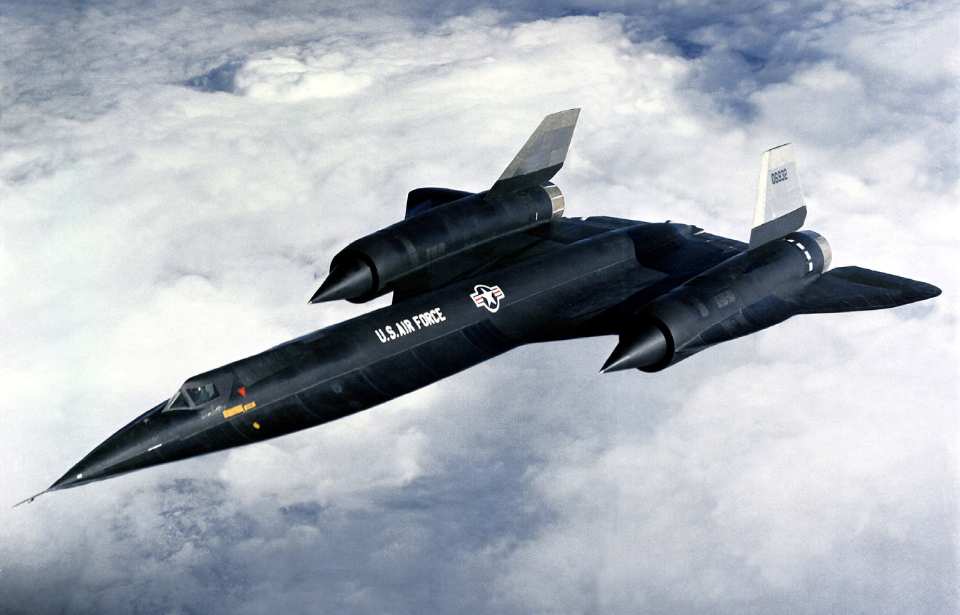The Lockheed A-12 spy plane was developed for the Central Intelligence Agency (CIA) for service during Project Oxcart. While it had the potential for a long career, its niche but vital service led to its early retirement just 10 months after being deployed to Asia. During that time, the aircraft provided high-value photo intelligence in a number of missions – and looked cool doing it.
An aircraft for James Bond
The look of the supersonic Lockheed A-12 is something straight out of a spy movie. This reconnaissance aircraft was sleek and modern, and with a sultry matte black finish looked suited for the likes of James Bond.

It spanned 101 feet and had an extremely long, thin fuselage, which gave the spy plane its smooth, futuristic look. Likened to a Corvette in the sky by The National Interest, the A-12 not only looked pretty, but was functional, too.
The Lockheed A-12 is ordered by the CIA
First under discussion in the early 1950s, the Lockheed A-12 was intended to replace the U-2 for use as a reconnaissance aircraft against the Soviet Union. Competing against Convair’s Kingfish and FISH designs, Lockheed won the contract in 1959 to manufacture the A-12. Not long after, the company began production of the aircraft.
By January 1960, the CIA had ordered 12.
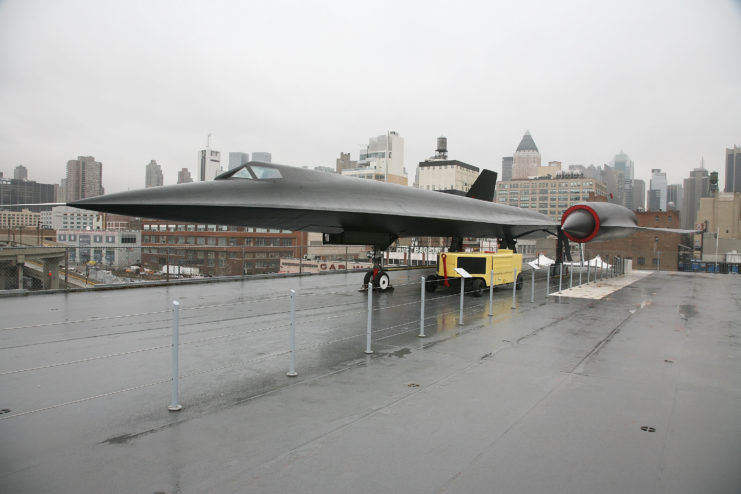
Plans to fly the A-12 over the Soviet Union were canceled not long after. In May 1960, pilot Francis Gary Powers was shot down and captured while flying a U-2 over the USSR. Following this incident, the US and Soviet Union signed an agreement to no longer fly manned vehicles over the Soviet Union.
It was deemed too dangerous to fly over Soviet territory, and the A-12 was grounded.
Operation Black Shield
As early as 1965, the US was considering using the A-12 to spy on Chinese military activity. After two years of milling it over, the CIA decided to deploy the aircraft to Kadena Air Base in Okinawa, Japan. President Lyndon B. Johnson, upon hearing rumors the Northern Vietnamese had obtained surface-to-air missiles (SAM), approved the formal proposal to deploy the A-12 and Operation Black Shield began.
The first A-12 deployed to Kadena AB flew non-stop from the US to Japan, in a trip totaling six hours and six minutes. The second managed to complete the flight even faster, in five hours and 55 minutes. On May 29, 1967, the A-12 made its first operational flight, following one flight line over North Vietnam and another over the demilitarized zone between North and South Vietnam.
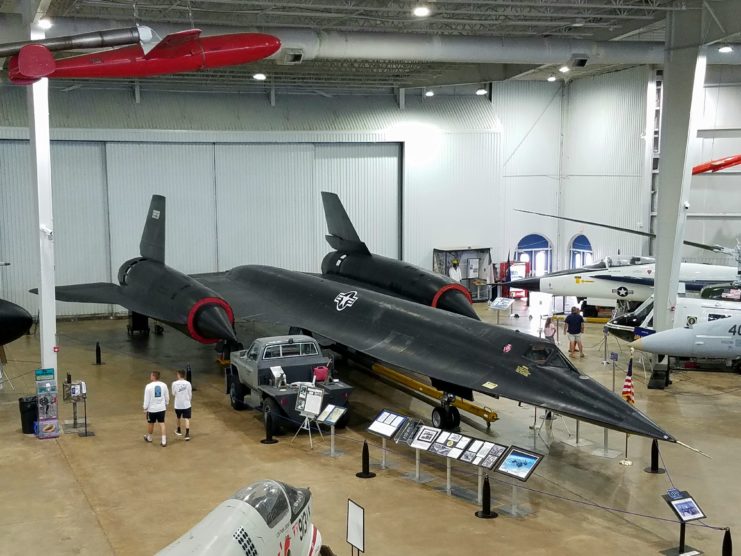
During this flight, the A-12 went undetected by North Vietnamese and Chinese radar and captured photographs that identified 70 of 190 known SAM sites. Encouraged, the CIA made many more operational flights over the area and eventually came to the conclusion there were no SAMs in North Vietnam.
Lockheed A-12 detected
In October 1967, pilot Dennis Sullivan was detected by Fan Song guidance radar, which caused the North Vietnamese to launch at least six missiles at the aircraft. The A-12’s supersonic capabilities allowed it to fly at a speed of Mach 3.2, but the missiles shot at Sullivan could fly at Mach 3.5. Looking in his rearview periscope, he saw the contrails of four missiles heading for his tail.
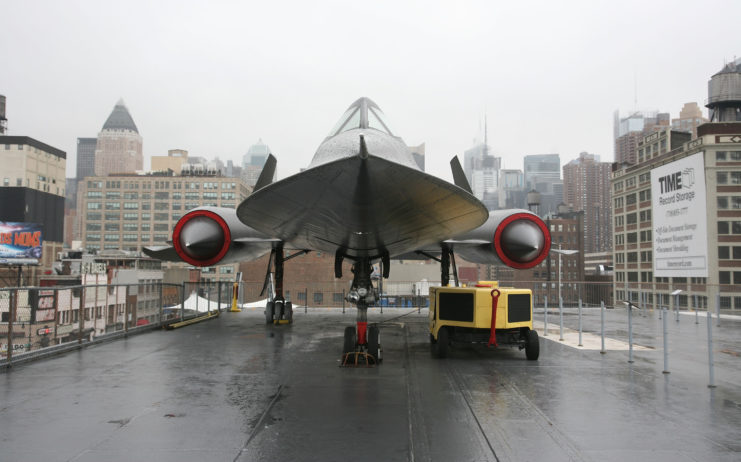
Luckily, Sullivan escaped the missiles and landed the A-12 at Kadena AB. It was later discovered that two metal fragments from a missile’s nose cone had become buried under his low left-wing, just short of the aircraft’s fuel tank. If the fragments had hit the tank, it could have proved fatal for Sullivan.
During a speech to discuss Project Oxcart, the pilot said, “They’d get right up behind me, very close, and all of a sudden there’d be a big red fireball – a big white cloud of smoke – and you’d immediately pull away from it.”
The Lockheed A-12’s early retirement
The Lockheed A-12’s retirement came about due to a number of factors, but the primary reason surrounded the development of the SR-71 Blackbird. At the same time Lockheed was working on the A-12, the company had already began conceptualizing the SR-71. It entered into service in 1966.
While it and the A-12 share a similar appearance, the SR-71 has features that differ significantly from its predecessor. The aircraft has two-seats and is longer in length than the A-12. It also has a longer-lasting fuel range.
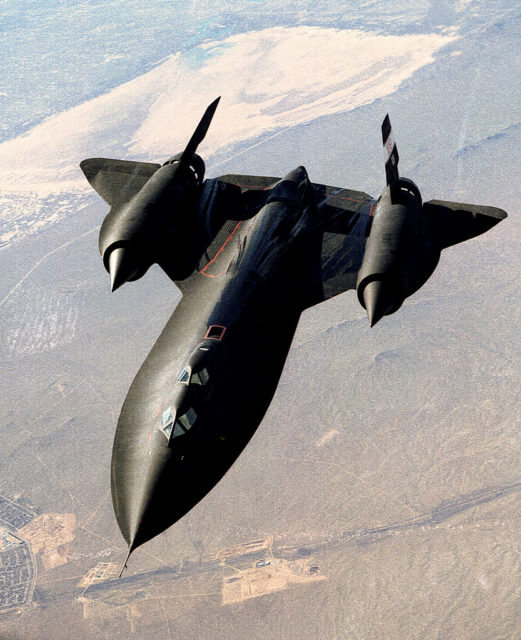
More from us: The F-14 Tomcat: A Fighter Made For Top Gun Pilots
The A-12 had its own benefits. It was lighter than the SR-71 and could go faster, but concerns over the cost of running both programs ultimately ended in the termination of A-12 project in 1968. Over the course of the aircraft’s short-lived career, A-12 pilots had flown 29 missions over Asia.
Nine A-12s remain on display in various museums across the United States.
